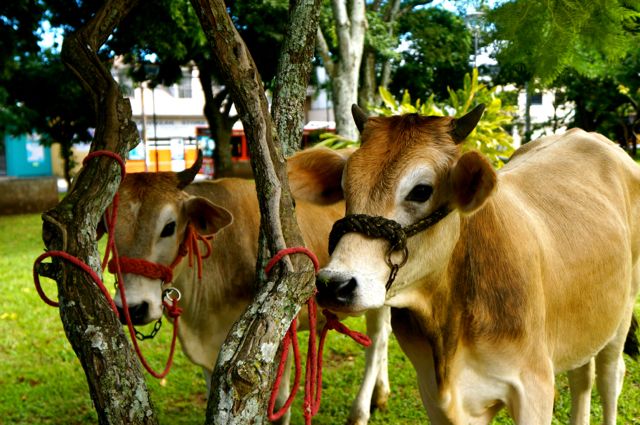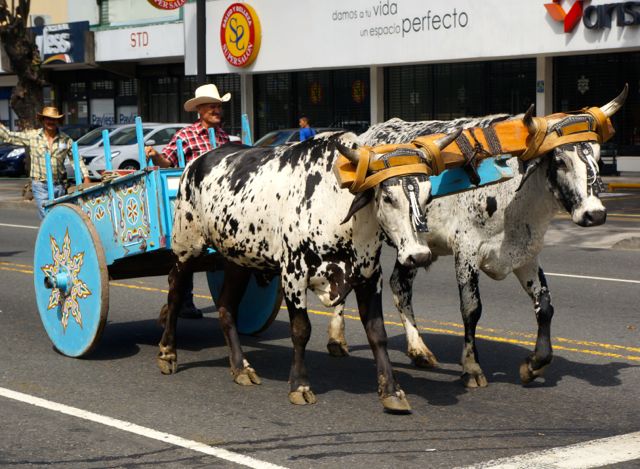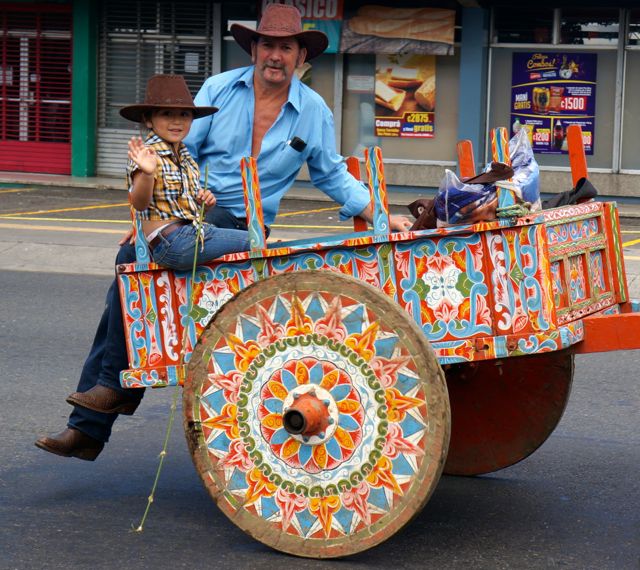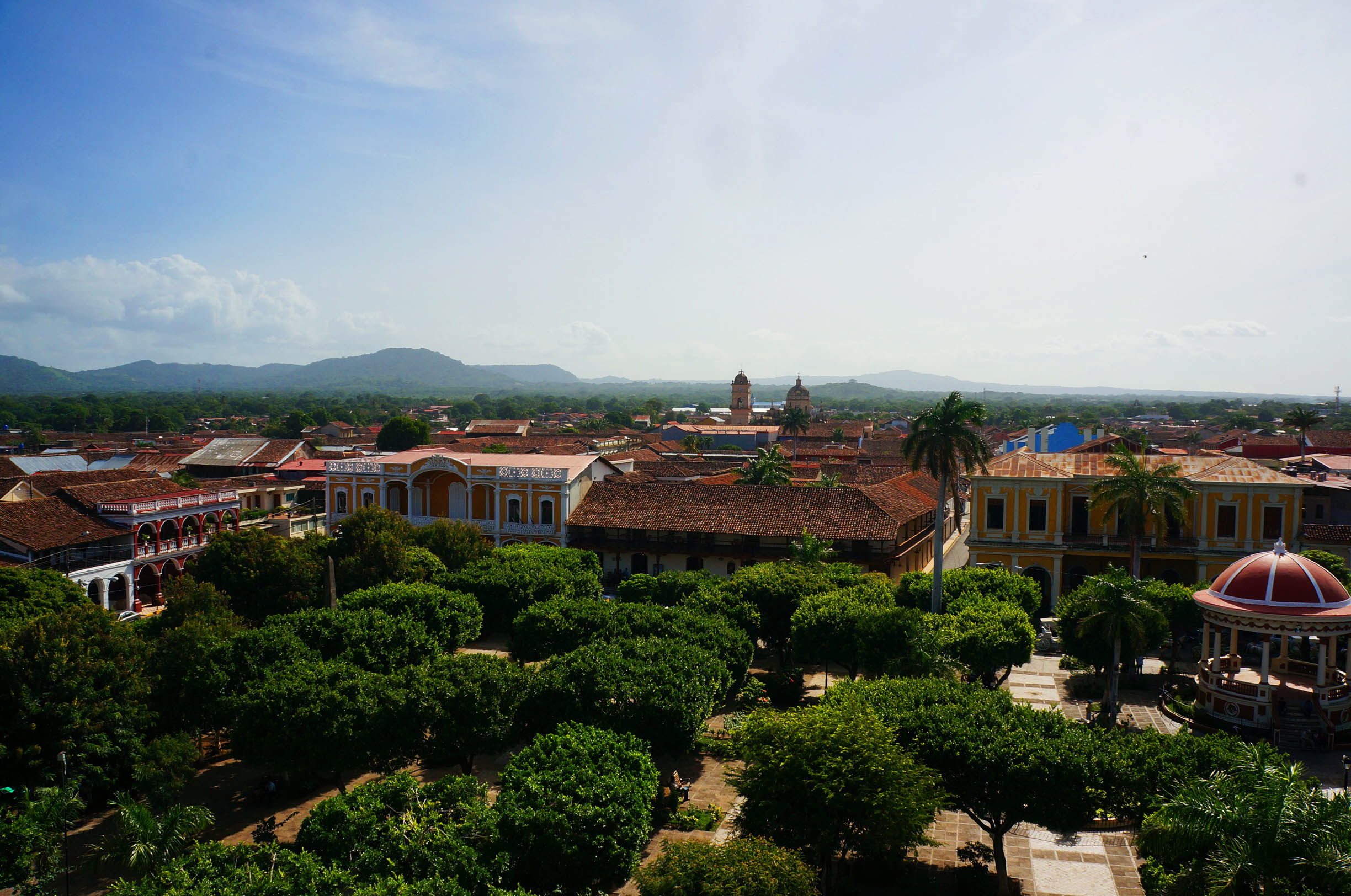One of the main reasons why I love traveling so much is because it allows me to learn about the world in a way that is deep, meaningful and personal. From soaking up tradition and culture in the medinas of Marrakech, Morocco to
 If there's one defining symbol of Costa Rican culture, it has to be the oxcart (ok, apart from football jerseys, coffee and cerveza Imperial, that is).
The importance of the oxcart, or carreta, dates back to the mid-nineteenth century. The elaborate, hand-painted carts were first used as a means to transport coffee beans.
If there's one defining symbol of Costa Rican culture, it has to be the oxcart (ok, apart from football jerseys, coffee and cerveza Imperial, that is).
The importance of the oxcart, or carreta, dates back to the mid-nineteenth century. The elaborate, hand-painted carts were first used as a means to transport coffee beans.
 While coffee is now Costa Rica's sixth largest export to the tune of $362 million annually, the crop is actually not native to the country; the Arabica coffee plant was introduced in the 1700s. The fertile soil, high altitude and cool climate of Costa Rica's Central Valley, made it the ideal environment for the crop to flourish.
In 1829 coffee became one of Costa Rica's top exports, surpassing tobacco, sugar and cacao. The capital city of San Jose boomed as wealthy coffee barons and traders made the city their base in the Central Valley.
While coffee is now Costa Rica's sixth largest export to the tune of $362 million annually, the crop is actually not native to the country; the Arabica coffee plant was introduced in the 1700s. The fertile soil, high altitude and cool climate of Costa Rica's Central Valley, made it the ideal environment for the crop to flourish.
In 1829 coffee became one of Costa Rica's top exports, surpassing tobacco, sugar and cacao. The capital city of San Jose boomed as wealthy coffee barons and traders made the city their base in the Central Valley.
 With no railroad built until 1890, coffee producers were faced with the challenge of transporting beans from the Central Valley over steep and winding mountains to the port of Puntarenas on the Pacific Coast. Ticos solved this challenge with the use of oxcarts.
With no railroad built until 1890, coffee producers were faced with the challenge of transporting beans from the Central Valley over steep and winding mountains to the port of Puntarenas on the Pacific Coast. Ticos solved this challenge with the use of oxcarts.

In the soft heat of a Havana morning, I trot up the steps at the Hotel Nacional de Cuba. As I reach the top stoop, the doors gently breeze open and I enter the lobby. A world of the past awaits. Grand chandeliers
Last week I reached a huge personal milestone and visited my 40th country – Cuba! Before my more informational posts roll in, I'm taking some space to reflect on what this means to me.
Looking for a day trip from Granada, Nicaragua? For a relaxing day filled with breathtaking scenery, head to the tranquil shores of Laguna de Apoyo
Step inside one of the most stunning colonial cities in Central America and discover the beauty of Granada, Nicaragua in photos.
Traveling less and living more has allowed me to learn how to experience Costa Rica like a local.
What Can You See In El Salvador on a Layover? It turns out quite a lot. Read on for the San Salvador highlights that can be visited in just a few hours.
Congratulations, El Salvador. You win the award for being the only country where I’ve been hit on even before getting my passport officially stamped. Read on about my experiences traveling alone in El Salvador.
Guatemala is a beautiful travel destination for female solo travelers full of natural beauty, history and culture. Some simply safety precautions can help you to have an enjoyable and safe trip. Follow these top tips for women traveling to Guatemala.











